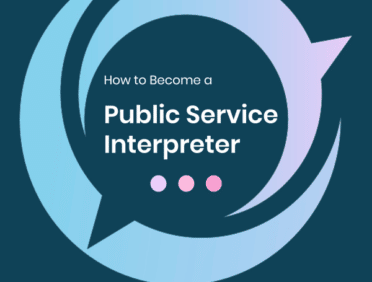The Importance of Interpreting in Primary Care
Whilst many people in the UK can speak and understand English, some find the English language somewhat difficult. Not being able to speak English, or even speaking English but not as well as a ‘primary’ language, makes things much harder than for those who can speak English. Especially when it comes to things that we take for granted, such as medical care.
This is where the idea of interpreting in primary care comes in. Interpreters provide a service for service users, carers and those that work in a medical profession, ensuring that everyone can be understood, no matter if those involved speak the same language or not. This is particularly important when it comes to healthcare, especially in an emergency or a high-pressure environment, and can literally be the difference between life or death.
Understanding Community Interpreting
Whilst some people cannot understand or speak English, the good news is that there are also people who are out there who can understand and speak more than one language. These people can then use this skill and act as community interpreters.
Definition and Scope
The idea of a community interpreter is that it is someone who is there to help to translate from or to English to enable those who are unable to do so to engage with public services in the UK. This includes healthcare. These people may act as a volunteers, helping people to access medical care, but more often they will have as a paid role as a professional interpreter.
The Role of Community Interpreters in Healthcare Settings
Community interpreters can be incredibly useful in a healthcare setting. This is because they provide a vital service, not only for the patient (service users) who need to understand what is happening to them and what the plans are for their medical situation but also for the clinician or the carer (service providers) too.
With the help of a community interpreter, the service user is going to be able to convey what symptoms they are suffering from and the service provider can ask any relevant questions to learn more about what they can then do to help them, and then provide the service user with the help that they need.
Training and Certification Requirements for Community Interpreters in the UK
Whilst the main thing that you are going to need to act as an interpreter is the knowledge of more than one language (one of which will need to be English here in the UK) it is worth noting that to get a paid role, you are going to need to be recognised as a qualified interpreter. Most medical service providers will insist on only using qualified interpreters, but as an individual nobody should attempt to provide interpreting services without taking training and passing a qualification at community interpreting level 3 or above because providing interpreting services without this knowledge and recognition is a serious risk to the service user. In the past, service users have lost their lives due to poor interpretation and no matter how good you may think you are, it’s easy to make a mistake or provide services incorrectly that can lead to disaster.
The qualification needed for medical interpreting is a Level 3 Certificate in Community Interpreting. This is fully accredited and UK government regulated, meaning that it can be taken to a variety of clients and also the agencies that specialise in interpreting.
The Impact of Language Barriers in Primary Care
Now we know more about what interpreters do and how someone can become a community interpreter, it is worthwhile considering what might happen if they were not there to help in primary care.
Let’s take a look at the impact of language barriers in primary care.
Challenges Faced by Limited English-Proficient service users
The main challenge that can be faced by someone who is recognised as being a Limited English-Proficient service user (or LEP) is understanding. This not only means that they may find it hard to understand what is happening to them or what the next steps are going to be, but they may also find it harder to have themselves understood too.
They may not be able to communicate their symptoms effectively to the service provider or be able to express how they are feeling. When they are asked questions which can help them to receive their diagnosis and treatment plan, there is a good chance that they will not understand what is being asked of them, or know the words to use to share with the service provider this additional information.
In addition, they may feel frightened, lost and alone, they may be confused and they may not, above everything else, get the level of care that they need.
One of the advantages of interpreters, is that they help people overcome these challenges.
Risks of Miscommunication in Medical Settings
Miscommunication is a key risk when it comes to service providers and miscommunication can in itself, be a risk factor in medical settings. With miscommunication can often come misdiagnosis, which can have a huge impact on the person concerned.
They may end up not getting the right help that they need, or they may find that the correct medical treatment plan is going to be delayed. Not only can this make their symptoms worse, but they could even find that the condition, illness or injury that they have gets worse over time.
Need for Culturally Sensitive Interpreting Services
One of the key reasons to have interpretation services is because it allows for both parties to be understood when it comes to medical matters. However, it is one thing to have someone who speaks a certain language, it is another thing to make sure that those people that are acting as community interpreters have some idea of what cultural sensitivities the people concerned may face.
Some cultures have certain social norms and behaviours that may have an impact when it comes to medical examinations to diagnose their issue or receiving information. These may not necessarily be something that the service providers are aware of and could create challenges, so having someone on hand who is aware of these cultural sensitivities can make all the difference.
The Vital Role of Community Interpreters in UK Primary Care
So, why have interpreters become such a vital part of UK primary care? What is it that they do to help enable and improve the medical care of other people?
Enhancing service provider-service user Communication
Of course, the main reason to have these interpreters is because they can ensure that there is effective service provider – service user communication at all times. Interpreters act as a go-between, ensuring that both parties understand what is being said and have all the key information that is needed.
They are also there to ensure that any questions can be asked and concerns dealt with in real-time, which can help the service user to feel calmer about what is going on and the service provider to have as much information as they need.
Facilitating Accurate Medical History Gathering
Another key reason for having interpreters in a medical setting is because they can ensure that all the information that is conveyed to and from the service user is as accurate as possible.
This not only relates to symptoms from the here and now but also the medical history that the person may have had too. Having all this key information can help service providers to make a decision and to ensure that they can help the service user properly.
Improving Treatment Compliance and Health Outcomes
When service providers have the right information, they are going to be able to put together the right treatment plan and health outcomes for the service user. When the service user is fully compliant and provides all the relevant information the service provider can then make fully informed decisions.
This means the treatments that are offered to the service user will be the best ones for the individual, that will lead to the best possible health outcomes. This is something that should always be the focus of any medical appointment.
Ensuring Effective Interpreting Services in Primary Care
Interpreting services in primary care are vitally important, they can help both service users receive the care that they need and the service providers to provide that care. Whilst it is useful to have community interpreting services in healthcare, that doesn’t necessarily mean that it is easy to integrate this.
Let’s take a look at how we can ensure that we have effective and fully integrated interpreting services in primary care.
Integrating Interpreting Services into Healthcare Systems
Any interpreting services that are required in healthcare must be properly integrated into the overall healthcare system. That way, they can be easily accessed by the service users and the service providers, where required.
Interpreting services should be able to be requested and then easily brought into a consultation, even at relatively short notice. There may, of course, be a delay to this happening, as the right interpreter is sourced for the language spoken, but it should be a process that flows well and that everyone is aware of. In the UK healthcare system today, a combination of face-to-face, telephone and video interpreting are used to ensure that all parties get the right service, within the right timescales, at the right time.
Best Practises for Working with Community Interpreters
It is important that an interpreter is not left alone with a service user and that at all times they are with a service provider. It is important that the interpreter can easily hear and be heard during the consultation, as this will help to ensure that there are no mistakes or misunderstandings when it comes to the consultation.
It is also important that interpreters are introduced correctly to the service user and that service users are comfortable speaking with the interpreter during the consultation. Of course, more often than not the service user will be happy to have someone to help them understand, but it is always important that the service provider checks this.
Service providers should also ensure that they always address the service user. None of the participants should address the interpreter directly, and they should always speak in the first person (I, me, you).
Overcoming Common Challenges in Community Interpreting
Whilst there is plenty of good that can come from being an interpreter and offering this service to those who are in need, there are also some key challenges that can arise from offering interpreting services.
The first is that it can be a hard role to take on, there is often lots of demand, especially for particular languages, which can mean that an interpreter is very busy. This can make the role, particularly if it is a paid one within a hospital setting, seem like it is very fast-paced and demanding. But of course, it is important to recognise that even when things feel a little on the stressful side, it is always for the good of the people that need the service.
Another challenge that can come up is the cultural issues and differences that can come with working with people from all over the world. Whilst you may be able to speak the same language as someone else, you may not entirely recognise their culture or certain aspects of what makes it different, particularly if your language (e.g. Spanish) is spoken in many different countries. This can lead to challenges down the line. It is important to recognise that each culture can be different regardless of commonalities in language and do your best to understand what is important to them and why.
It is also a common challenge that the interpreter may find it hard to understand what is being said. Both by the service user and the service provider. A service user may have an accent, or speak in a particular way that relates to the area that they are from. They may be unwell which will impact the way that they speak and they may be feeling scared, in pain or frustrated, which can also impact how well they are understood.
In terms of the service provider, what they are saying may not make any sense to the person who is interpreting, particularly if there is medical terminology involved. This could mean that what is being relayed to the service user could be misunderstood, which can cause issues, especially if the service provider doesn’t realise what is being said.
The position of the interpreter in the room, background noises or even the technology being used to provide the interpreting service can also make it difficult to hear clearly.
Addressing Cultural Competence in Community Interpreting
We have already looked at how cultural differences can impact interpreting and the effectiveness of what is being said or needs to be understood. Cultural competence is, therefore, one of the main challenges that can arise within community interpreting. However, it can also be one of the easier things to overcome.
Understanding Cultural Differences and Sensitivities
The first thing that any interpreter needs to be able to do is to understand there are key cultural differences between the parties and the sensitivities that can come with this. They should recognise that even if someone speaks the same language as another person, that does not necessarily mean that they have the same values or cultural beliefs.
An interpreter can combat this by taking the time to learn more about the different cultures that can be related to their language. Of course, they can never know them inside out, but what they can do is try to have an overview of what key cultural aspects could impact them in a medical or care setting.
That way, they can approach their dealings with them in a much more sensitive way.
Promoting Inclusivity and Respect in Healthcare Settings
It is also important that anyone who works in a healthcare setting, not just community interpreters, understand the key factors of promoting inclusivity for those that are seeking medical help from them. They should be able to identify where cultural differences can occur and respect every single person, no matter their background.
Empowering Interpreters to Navigate Cultural Nuances
Interpreters should also feel that they can navigate and deal with the variety of cultural nuances that could arise in an assignment. Not only for themselves, whilst they provide the interpreting service to those who need it, but also for those around them too. After all, it is not only the service users who can sometimes have a different culture, it can also be staff within the hospital setting and the interpreter themselves.
Successful Implementations of Community Interpreting
It is important to ensure that community interpreting is successfully implemented into the healthcare setting so that all parties can enjoy key benefits:
Helping to Improve Service User Outcomes
The main focus should always be on ensuring that the outcomes for the service user are improved. The service user should be able to access the right level of care that they need and then feel that their needs have been met. They should leave feeling comfortable with the medical support they have received and be aware of both their diagnosis and their ongoing treatment plan.
Get Feedback from Service Users
One of the best ways to learn about how well something is performing is to ask those who have accessed the service. This is true when it comes to community interpreting. The service should have been able to help the service users in their time of need, which means that they should then be more than happy to provide feedback on their experience.
Whilst it should always be the aim to get positive feedback, negative feedback can and will happen. It should always be seen as a way to learn and improve the service and ensure that the next service user who requires it is going to be left feeling much more positive.
Usually it is the responsibility of the service providers, or the interpreting agency, to collect feedback – you should not aim to collect it directly.
Cost-Effectiveness and Long-term Benefits
Paid community interpreter roles come at a cost, however, it is always worth noting that there are many ways to keep this as cost-effective as possible.
One way that Language Service Providers (LSPs)(a.k.a interpreting agencies) do that is to hire interpreters by the hour, or by the assignment, as opposed to having full time interpreters, therefore they are only brought in as and when they are needed, then paid for this time. Of course, the issue with this can be that an interpreter may not be available when there is an emergency, which can lead to issues arising.
The Service Providers themselves usually also cut costs associated by having to research, hire and book interpreters directly by having contracts with LSPs.
Although this model has been criticised by some, it is the most cost effective and efficient way to work and allows service providers to continue providing quality interpreting services to those who need it.
Future Perspectives and Challenges
Community interpreting is something that is growing and developing throughout the UK. Not only the way that the service is provided to those who need it but also the challenges that can arise with interpreting.
Potential Growth of Community Interpreting in the UK
The UK is becoming a more culturally diverse place to live, which means that we now have many amazing cultures, languages and people in one place. Whilst many can speak English, some have a limited understanding of the language. For these people, even accessing the most basic things, such as healthcare, can be intimidating. This means that the need for community interpreting will continue to grow.
Addressing Language Diversity and Demographic Changes
With cultural diversity also comes language and demographic diversity. This can make the concept and approach of interpreting even harder. It is not necessarily possible to be able to learn all of the different key factors of all cultures, but it is possible to have an overview of what may be different.
This means that interpreters should aim to keep themselves abreast of any changes to the cultures they interpret for by keeping an eye on news articles, speaking with people who live in the ‘native’ countries, and spending time immersed in the relevant culture where possible.
Not only this, but respect can be something that is applied to every person that is dealt with, after all, every single person, no matter their background, deserves respect.
Advocating for Increased Recognition, Support
For community interpreting to be able to work the way that it needs to, it is vitally important that the community have the recognition and support to achieve its goals. This means that the awareness and advocacy for interpreting, particularly in healthcare settings, needs to be improved.
This could be something as simple as showing people the benefits that it can have, as well as ensuring that they are aware of what community interpreters can do and what they offer to those who need it. It can also be about education – ensuring peop[le are aware of the benefits of using qualified interpreters and the potential risks involved with relying on informal interpreters such as ‘friends or family’ instead of a professional.
Training and Professional Development for Community Interpreters
To have a wealth of community interpreters ready and waiting to help those who need it most, there needs to be the right approach to the training and professional development of these key people.
Available Training programmes in the UK
The minimum level that a community interpreter should have to take in a paid role is community interpreting Level 3. The Level 3 Certificate in Community Interpreting can be studied part-time, and structured around your existing life commitments.
Continuing Education and Skill Development
Interpreting is a skill that needs to be worked on to keep it fresh. This means that those who are acting as interpreters need to find the best ways for them to continue to develop and work on their skills and knowledge.
Of course, the easiest way to do this is to simply keep on speaking and listening to the language or languages that you can interpret, but, you may also want to look at more official training and development opportunities which can help to develop this further.
Continual Professional Development (CPD) doesn’t have to be formal or a course, however, and there are many ways to continue your development. Spending time building a glossary, looking up terms, reading relevant articles or listening to TV or radio programmes in the relevant languages are all ways to complete CPD for little or no investment.
Importance of Ethical Standards and Confidentiality
One of the key things that any interpreters need to appreciate is the importance of ethical standards and confidentiality. They must be aware of how what they hear and say should be treated in a way that is respectful and confidential and that they always treat those who need their services in a way that is appropriate and ethically sound. Interpreters should work to a code of practice or conduct such as the NRPSI Interpreter Code of Conduct (COC) or a COC that is provided by the LSP or service provider.
To download a brief guide to the Interpreter Code of Conduct, click here.
Becoming an Interpreter
If you want to become an interpreter, a great place to start is with the entry level Level 3 Certificate in Community Interpreting, which is the entry level and allows you to take paid interpreting assignments. At Learn Q we have a number of options
The Level 3 Certificate in Community Interpreting Essentials Bundle includes the course, one attempt at the exam and the certificate for £544 or £68 per month.
Level 3 Ultimate also includes a second attempt at the exam in case you fail first time and is £600 or £75 per month.
The e-book ‘How to be a Public Service Interpreter‘ is £25 and is a great alternative to the course for those who prefer to read in their own time. It is full of exercises to help build your skills and knowledge.
There is also an exam only option for those with professional interpreting experience. It is £444 and can be taken within just 2 weeks of signing up so you can qualify quickly.












